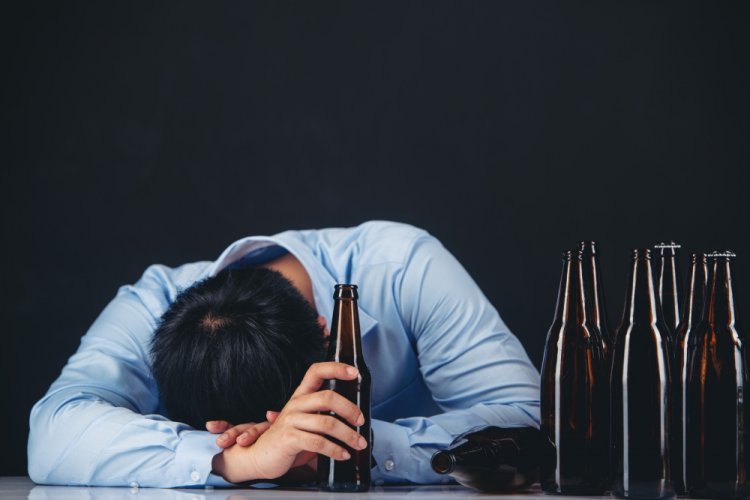Safe Benzo Detox at Home in San Diego: A Comprehensive Guide

Benzo detoxification, especially when done at home in San Diego, requires careful planning and consideration of various factors to ensure safety and effectiveness. This comprehensive guide provides essential information on how to approach benzo detox at home in San Diego, including the risks involved, preparation steps, withdrawal symptoms management, and when to seek professional help.
Understanding Benzos and Detoxification
What are Benzos?
Benzodiazepines, commonly referred to as benzos, are a class of psychoactive drugs used primarily to treat anxiety, insomnia, seizures, and muscle spasms. Examples include diazepam (Valium), alprazolam (Xanax), lorazepam (Ativan), and clonazepam (Klonopin). Benzos work by enhancing the effects of gamma-aminobutyric acid (GABA), a neurotransmitter that inhibits brain activity, leading to sedative, calming effects.
Need for Detoxification
Long-term use or misuse of benzos can lead to physical dependence, where the body adapts to the presence of the drug and requires it to function normally. Abrupt cessation or reduction of benzo use can result in withdrawal symptoms, ranging from mild discomfort to severe complications, including seizures and psychosis. Detoxification is the process of safely managing withdrawal symptoms and eliminating the drug from the body.
Risks of Benzo Detox at Home
Detoxing from benzos at home can be challenging and carries inherent risks, especially for individuals with a history of severe addiction or co-occurring medical and mental health conditions. It's crucial to assess the risks and consider professional guidance, as unsupervised detox can lead to complications and relapse.
Preparation for Benzo Detox at Home
Consultation with Healthcare Provider
Before starting a benzo detox at home, consult with a healthcare provider, preferably a physician or addiction specialist. They can assess your health status, evaluate any underlying conditions, and provide personalized guidance on managing withdrawal symptoms.
Create a Supportive Environment
Ensure your home environment is conducive to recovery. Remove any substances that could trigger cravings, such as alcohol or prescription medications not prescribed to you. Inform close family members or friends about your detox plan and seek their support.
Stock Essential Supplies
Gather necessary supplies, including over-the-counter medications for symptom relief (under healthcare provider guidance), comfortable clothing, blankets, and nutritious foods. Stay hydrated and avoid caffeine and stimulants, which can exacerbate anxiety.
Managing Withdrawal Symptoms
Common Withdrawal Symptoms
Withdrawal symptoms from benzos can vary depending on factors such as dosage, duration of use, and individual health. Common symptoms include:
- Anxiety and panic attacks
- Insomnia and sleep disturbances
- Muscle spasms and tremors
- Irritability and mood swings
- Headaches and dizziness
Symptom Management Strategies
- Hydration and Nutrition: Drink plenty of fluids and eat balanced meals to support your body's recovery.
- Rest and Relaxation: Practice relaxation techniques such as deep breathing, meditation, or gentle yoga to reduce anxiety and promote sleep.
- Medications: Over-the-counter medications may help alleviate symptoms like headaches or muscle pain, but use them cautiously and as directed.
When to Seek Professional Help
Red Flags During Detox
Monitor your symptoms closely and seek immediate medical attention if you experience:
- Severe anxiety, panic attacks, or agitation
- Hallucinations or delusions
- Suicidal thoughts or behaviors
- Seizures or convulsions
Importance of Medical Supervision
For individuals with a history of severe addiction, co-occurring medical conditions, or previous complications during detox, medical supervision is strongly recommended. Detox facilities and addiction treatment centers in San Diego offer professional support, medications to manage withdrawal symptoms, and therapies to address underlying issues contributing to addiction.
Long-Term Recovery and Support
After Detox
Completing benzo detox is an essential first step towards recovery. Long-term sobriety and well-being require ongoing support, including:
- Therapy and Counseling: Address underlying issues contributing to addiction through individual or group therapy.
- Support Groups: Join local support groups or online communities to connect with others facing similar challenges.
- Healthy Lifestyle: Maintain a balanced diet, regular exercise, and practice stress-management techniques to support overall wellness.
Local Resources in San Diego
San Diego offers a range of resources for individuals seeking addiction treatment and support, including detox facilities, outpatient programs, and community-based organizations. Contact local healthcare providers or addiction specialists for referrals and guidance tailored to your needs.
Conclusion
Benzo detox at home in San Diego requires careful planning, preparation, and consideration of potential risks. While some individuals may successfully manage detoxification independently, others may benefit from professional supervision and support to ensure safety and effectiveness. Consulting with a healthcare provider, creating a supportive environment, and managing withdrawal symptoms are essential steps towards a successful detox process.
Prioritize your health and well-being throughout the detox journey, and don't hesitate to seek professional help if needed. With the right resources and support, you can achieve sobriety, regain control of your life, and embark on a path towards long-term recovery.
What's Your Reaction?










![Wireless Connectivity Software Market Size, Share | Statistics [2032]](https://handyclassified.com/uploads/images/202404/image_100x75_661f3be896033.jpg)



